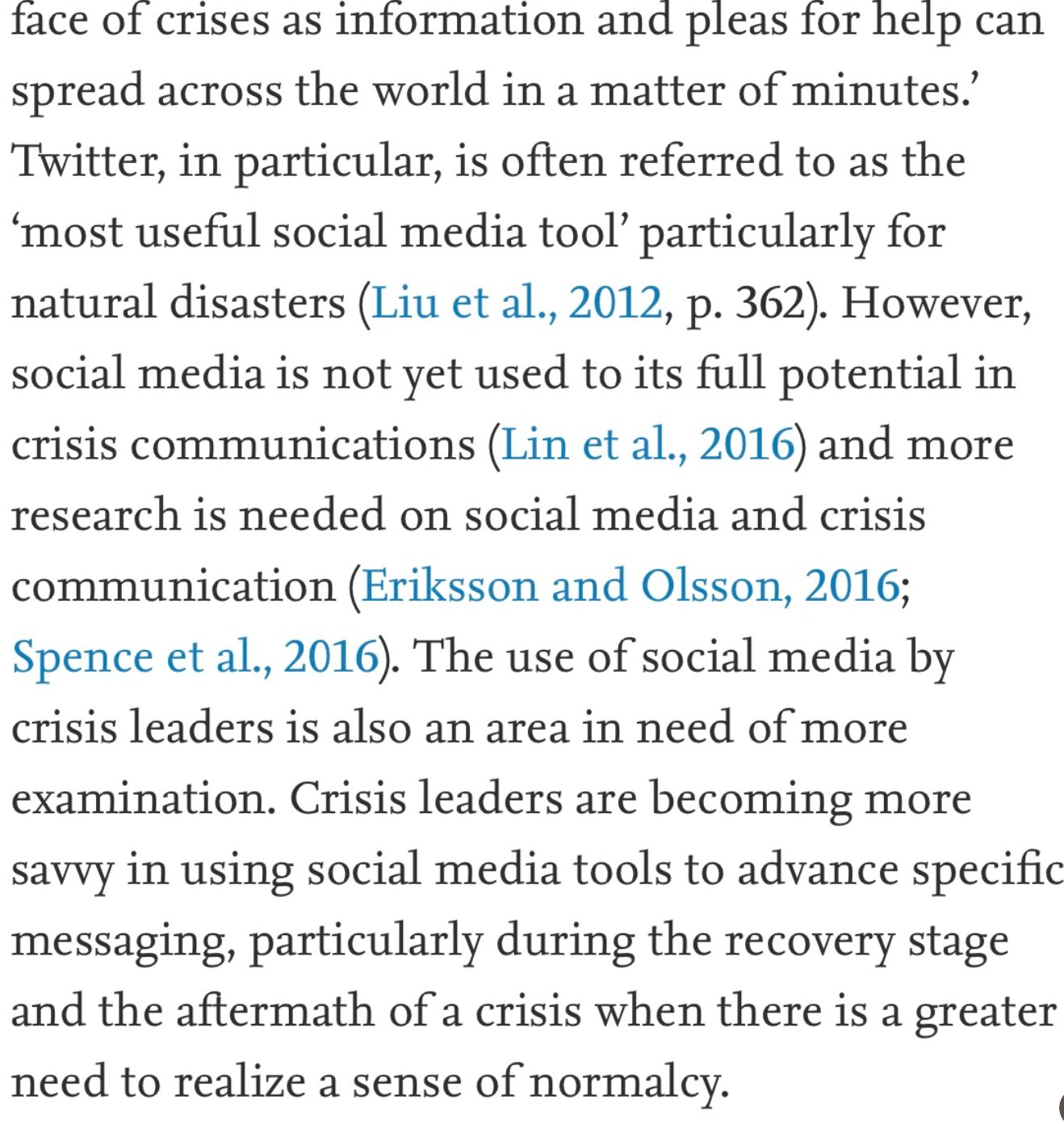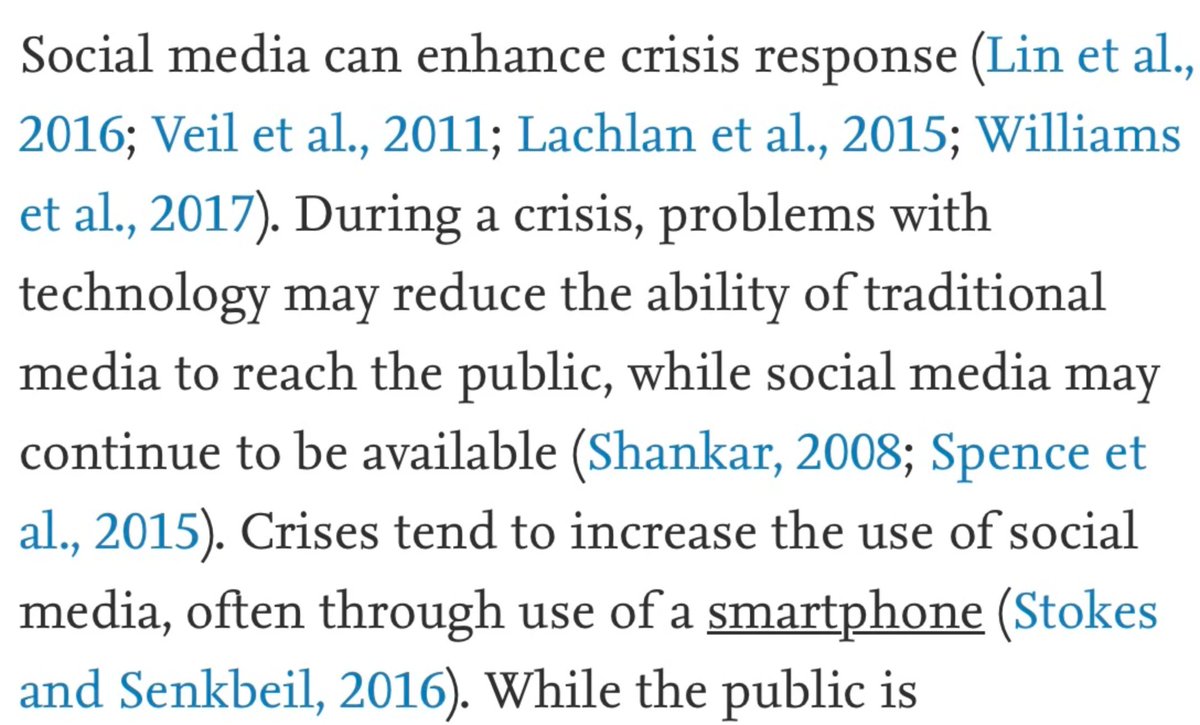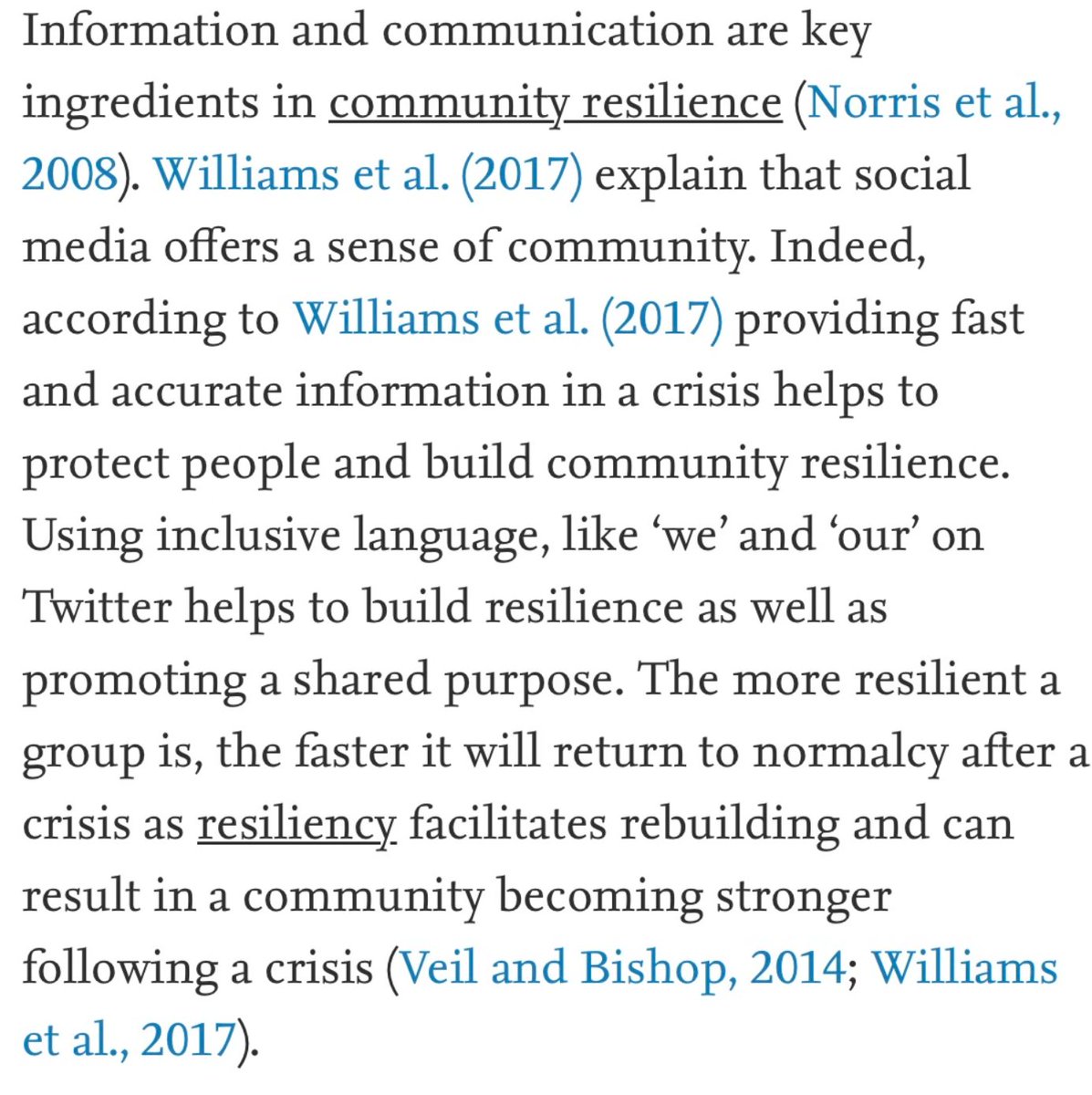This incomplete post is the best I can do this morning as I catch the rapidly-unfolding events at Twitter.
One thing that keeps me up at night right now is the possibility that Twitter’s potential death spiral will coincide with a major regional/national/global crisis. For better or worse, Twitter is a crucial disaster comms tool, and we don’t have a replacement for it.
Twitter has been a vital source of information, networking, guidance, real-time updates, community mutual aid, & more during hurricanes, wildfires, wars, outbreaks, terrorist attacks, mass shootings...etc. It's not something that can be replaced by any existing platforms.
If Twitter suddenly stops working or if huge swaths of the population can't access it during a crisis, the result will almost certainly be preventable suffering & death. Elon Musk needs to stop treating this like a playground, and start protecting it as vital infrastructure.
This isn't just my opinion. There is an entire line of research exploring the use of Twitter for crisis- and disaster communication. For example, here's a great study about the significance of Twitter as a communications tool during Hurricane Harvey.
https://www.sciencedirect.com/science/article/pii/S2405844020316479
As this study notes, Twitter has been identified by some researchers as the "most useful social media tool" for communicating during disasters. Other platforms play a role, but Twitter is the central hub for journalists, govt, citizens, witnesses/survivors, & first responders.
One of the reasons Twitter is such an important comms tool during disasters is that the nature of crises often makes it hard for traditional media to reach the public and the disaster scene. Twitter is often the first and only source of info about unfolding crises.
The design of Twitter is also uniquely conducive for use during crises. Hashtags, for example, become crucial navigational tools to find relevant, up-to-date information and advisories in one central place without having to lose valuable time searching multiple websites.
Effective use of Twitter by government agencies can also engender trust in those agencies during crises, which is critical when you need people to follow evacuation orders or other safety protocols. It helps keep people informed, engaged, and alive.
Twitter can also play a crucial role in the healing process after crises. It gives people a space to build community resilience, which also helps us better prepare for future disasters. These are, quite literally, life-saving implications.
My colleagues and I recently wrote/presented a paper on this very topic (I will share it when it's published), and one of our findings was that Twitter actually shapes the course and outcome of crises. It can literally mean the difference between life and death.
I truly hope Elon Musk will see that he holds people's lives in his hands, and will start acting accordingly — because if he continues playing around with Twitter like a new toy, he *will* be responsible for deaths at some point.
In the meantime, I hope you'll use this opportunity to plan ahead. Make an emergency communication plan for your family, your workplace, your neighbors, etc. Don't wait until it's too late.
Here's how to get started on that:
https://www.ready.gov/plan-form
Here’s more reading on the use of Twitter for disaster communication if you’re interested:






No comments:
Post a Comment